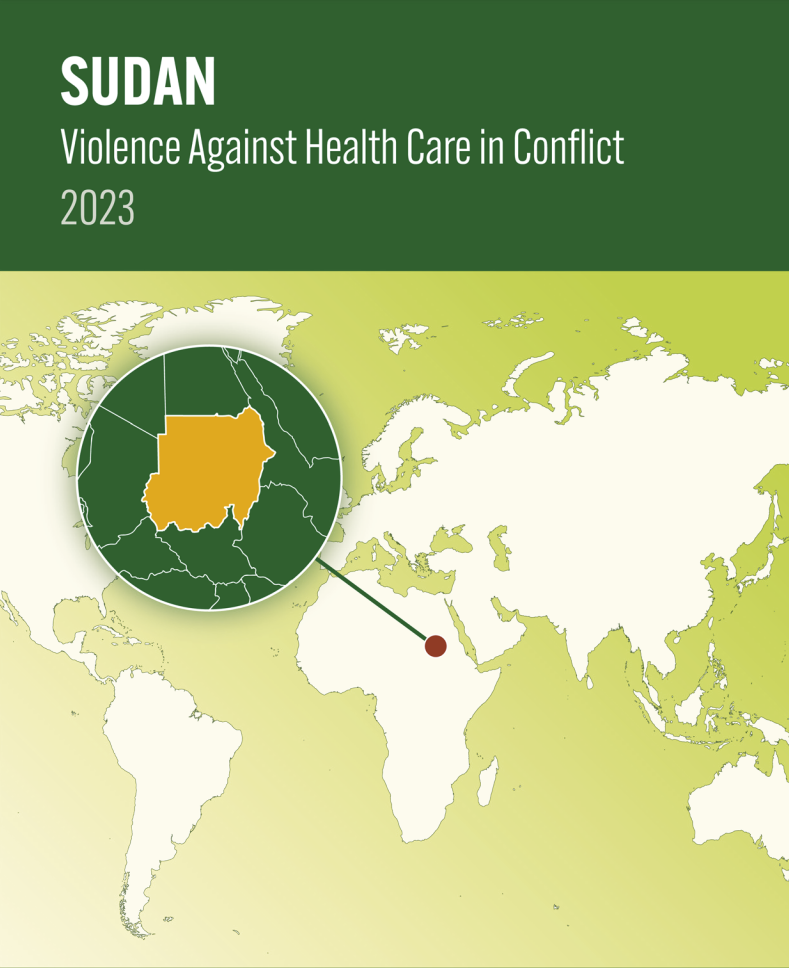Sudan's Health Care System Under Siege in 2023: Hospitals Bombed, Over 50 Health Workers Killed, and Vital Supplies Looted
GENEVA – Health care was attacked 257 times in Sudan in 2023, according to the Safeguarding Health in Conflict Coalition. When intense fighting began in April 2023 between the Sudan Armed Forces (SAF) and the Rapid Support Forces (RSF), health care came under attack from the outset. On the first day of the conflict in Khartoum state alone, there were at least 27 instances of violence or obstruction against health care. The violence quickly spread throughout the country. Civilians have faced severe protection threats amidst what has been described as the "world’s largest internal displacement crisis" and the declaration of “famine conditions” in parts of the country in July 2024. This situation, combined with frequent telecommunication blackouts, have made health responses extremely challenging.
“The hundreds of attacks on health care in just a year have meant catastrophe for the people of Sudan, as hospitals ceased to function and health workers had to flee," said Dr. Yasir Elamin of the Sudanese American Physicians Association. “Women and children are especially at risk. As long as the consequences of violence against health care are borne only by the victims, perpetrators will continue to disregard the law and attack health care workers and infrastructure."
The report, available in both English and Arabic, highlights how throughout 2023, hospitals, clinics, and medical warehouses were bombed, shelled, and taken over, sometimes being repurposed as military bases. More than 50 health workers were killed, injured, kidnapped, or arrested, along with patients being affected. Drugs, medical supplies, and equipment were looted and frequently prevented from entering the country. Humanitarian workers faced visa denials or significant delays in obtaining them.
Approximately half of the incidents of violence against or obstruction of health care in Sudan were attributed to the RSF, whose members were often armed with guns. The SAF forces were also implicated, though less frequently. In West and South Darfur, Arab nomads and militias looted health facilities, seized vehicles, and inflicted harm on health workers.
"Violence against health workers, particularly those who dedicate their lives as specialists, is not just a tragic loss of life but a grave injustice to already under-resourced communities. It robs people of vital care, disrupts the entire health system and violates the right to health, said Dr. Rohini Haar, SHCC Steering Committee member and Lecturer, School of Law, University of California, Berkeley.
Among the report’s recommendations are:
- The International Criminal Court and national courts, through principles of universal jurisdiction, should, at long last, initiate prosecutions for war crimes and crimes against humanity involving attacks on the wounded and sick and on health facilities.
- Governments should cease arms transfers to parties to conflict that engage in grave breaches of international humanitarian law.
- Ministers of Health should engage with their own military and security forces and armed groups to protect health care from violence and strengthen mechanisms to mitigate the impacts of attacks on communities, health workers, and the health system.
- Regional bodies and the UN humanitarian cluster system should expand initiatives to protect health care in conflict and mitigate the impact of violence against it.
Origin: View original
